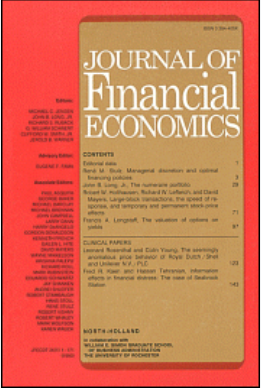国库交易商如何管理其头寸?
IF 10.4
1区 经济学
Q1 BUSINESS, FINANCE
引用次数: 0
摘要
利用美国国债交易商头寸的 31 年数据(1990-2020 年),我们发现国债发行是交易商每周库存变化的主要驱动力。这种库存波动仅在相邻的几周内被部分抵消,而且没有明显的期货对冲作用。交易商通过所持资产的后续价格上涨来补偿库存风险。在危机后监管变化导致资产负债表成本增加的情况下,交易商大幅减少了持仓量,并更快地裁减库存。此外,非交易商(投资基金)越来越多地参与一级市场,也减少了对拍卖库存风险的补偿。本文章由计算机程序翻译,如有差异,请以英文原文为准。
How do Treasury dealers manage their positions?
Using 31 years of data (1990–2020) on U.S. Treasury dealer positions, we find that Treasury issuance is the main driver of dealers’ weekly inventory changes. Such inventory fluctuations are only partially offset in adjacent weeks and not significantly hedged with futures. Dealers are compensated for inventory risk by means of subsequent price appreciation of their holdings. Amid increased balance sheet costs attributable to post-crisis regulatory changes, dealers significantly reduce their position taking and layoff inventory faster. Moreover, the increased participation of non-dealers (investment funds) in the primary market contributes to diminishing compensation for inventory risk taken on at auctions.
求助全文
通过发布文献求助,成功后即可免费获取论文全文。
去求助
来源期刊

Journal of Financial Economics
Multiple-
CiteScore
15.80
自引率
4.50%
发文量
192
审稿时长
37 days
期刊介绍:
The Journal of Financial Economics provides a specialized forum for the publication of research in the area of financial economics and the theory of the firm, placing primary emphasis on the highest quality analytical, empirical, and clinical contributions in the following major areas: capital markets, financial institutions, corporate finance, corporate governance, and the economics of organizations.
 求助内容:
求助内容: 应助结果提醒方式:
应助结果提醒方式:


